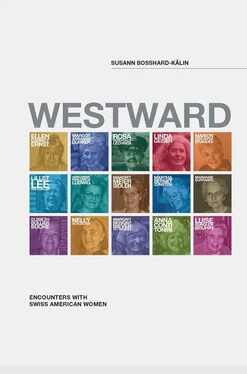Leo Schelbert - Westward
Здесь есть возможность читать онлайн «Leo Schelbert - Westward» — ознакомительный отрывок электронной книги совершенно бесплатно, а после прочтения отрывка купить полную версию. В некоторых случаях можно слушать аудио, скачать через торрент в формате fb2 и присутствует краткое содержание. Жанр: unrecognised, на английском языке. Описание произведения, (предисловие) а так же отзывы посетителей доступны на портале библиотеки ЛибКат.
- Название:Westward
- Автор:
- Жанр:
- Год:неизвестен
- ISBN:нет данных
- Рейтинг книги:3 / 5. Голосов: 1
-
Избранное:Добавить в избранное
- Отзывы:
-
Ваша оценка:
- 60
- 1
- 2
- 3
- 4
- 5
Westward: краткое содержание, описание и аннотация
Предлагаем к чтению аннотацию, описание, краткое содержание или предисловие (зависит от того, что написал сам автор книги «Westward»). Если вы не нашли необходимую информацию о книге — напишите в комментариях, мы постараемся отыскать её.
Westward — читать онлайн ознакомительный отрывок
Ниже представлен текст книги, разбитый по страницам. Система сохранения места последней прочитанной страницы, позволяет с удобством читать онлайн бесплатно книгу «Westward», без необходимости каждый раз заново искать на чём Вы остановились. Поставьте закладку, и сможете в любой момент перейти на страницу, на которой закончили чтение.
Интервал:
Закладка:
In 1963 Linda decided to move in with a girlfriend; they rented a small apartment in a red brick house on 5 thStreet. Both left their boyfriends. The apartment cost 35 dollars per month. The reliable Swiss woman soon earned the sympathy of the house owner, Mr. Trachtman. “From time to time I painted the walls, I organized the plumber when a pipe burst somewhere, and made sure that everything looked nice.
“My landlord thought I was great, ‘you are intelligent,’ he said. Fine! And after 16 years he said one day: ‘Why don’t you buy the house? You can have it cheap!’ No one from his family wanted to take it over. Thus, in 1979, I bought the red house in the East Village, the old immigrant house built in 1898, for $40,000. At the time this was about 160,000 Swiss francs. I had discussed it with my parents who helped.” Linda is enthusiastic about her neighbourhood. “Then the East Village was not as elegant as it is today. It was more of an alternative district with many hippies, but very informal and friendly. And New York was not yet the city of global business. The [World Trade Center] towers were just being planned. South of 14 thstreet there were still cobblestone streets. It was only later that prosperity arrived here too – that entire big bubble which now has burst.”
Little by little Linda remodeled the apartments, the old-fashioned “railroad flats” in which one room leads into the next. “In the meantime the apartments have arrived in the 21 stcentury, except my own. The Swiss TV series Lüthi and Blanc unfortunately stopped one year too early. I had invested the money I earned from this role in the renovations. Now I have to save again, and thus the four-footed tub still sits in the last room.”
5 thStreet between First and Second Avenue is often used as a backdrop for films. Very close to the red house is New York’s most famous police station, Precinct 9, which has been filmed very often. “Our façade is often in the camera’s view, or camera people climb up the fire ladder in order to shoot from up above. Then I get 200 dollars.”
Linda Geiser laughs playfully. “And it was not just a house that was passed on to me; without this special find I would not have met my current life partner. I was 43 and he was 20. John managed the bar on the first floor in my house. He taught me to play pool with the police officers stationed next door. He showed me pool tricks – and one night he didn’t go home. He stayed. My friends, women and men, warned me: This relationship will not go anywhere!”
You bet! “John is still here and has been with me for thirty years now. In the meantime he is fifty. A few times I kicked him out and called his mother that she ought to take him back. His mother is two years younger than I am. But he came back. He is from Brooklyn, a world that is totally different from mine and in the evening he smokes his marijuana joint. This is not for me. I tried mescaline once – which was strange. Marijuana does not agree with me and in 1968 I stopped smoking altogether, also regular cigarettes. Many of my friends at that time experimented with LSD and had anxiety attacks. And then it was I who stayed with them through all their panic taking care of them for hours and even days. Smoking, drugs, and alcohol are part of the theater world, but not for me. I can’t even drink much. My father says this is to do with our genes – as Anabaptists neither smoked nor drank.”
In the 1980s Linda Geiser also established herself as artist-craftswoman in New York. She was among the first people who exhibited erotica. “I made frames for mirrors with scenes from the Kamasutra. I could even exhibit them in the Kornfeld Gallery in Bern together with mirrors that I had decorated with angels. My mother was ashamed for me. After the first half hour all the erotic mirrors were sold, but only two of the angel mirrors!” She also wrote a play about Clara Schumann for the Music Festival in Interlaken (Switzerland) and another one about Heinrich Heine’s last mistress. Her “travel tours for women” – Seeing New York with Linda Geiser – also became popular in Switzerland.
“For years I explored Manhattan on foot and on the subway with groups of Swiss women – men were not actually excluded! For these visitors Pipilotti Rist’s exhibition was as sensational as a blues’ mass on Sunday in Harlem, signing the book of condolences for the death of Frank Sinatra in the most famous funeral home, or a performance in the theater during which we were all sprayed with water. Unfortunately the last two tours, which were solidly booked, were canceled after 9/11… though at that time the Swiss would have experienced the people of New York as never before and probably never again. But who knows, I may start the tours again.”
Since 1982 several cultural institutions of Switzerland have been renting apartments in Linda’s “Red House” where fellowship recipients from various art sections can spend some months. So far 113 artists, both women and men, have been able to profit from the cultural energy of New York. “These encounters with artists are very enriching for me and make me happy. The quiet house helps their talents to unfold and grow in the midst of the hectic, creatively exciting atmosphere of New York. I am hoping that in the coming years many more young artists will spend time here.
“I have found my path. It is only natural that occasionally I am in a bad mood or feel depressed. But on the whole I am a person who is able to come to terms with everything. Freedom is, however, important to me, and I don’t like it when people are dependent on me. Yet I am very willing to give of my time. People are important to me, but I want to be able to tell John: today I won’t cook. His socks he has to wash himself anyway. I like living with him – I can’t explain how we are doing it, but we function well together.
“We live modestly, and as I get older, I am eating less and more simply. I write, talk to myself, reinvent the world anew and then take it apart again. Thoughts dance around in my head; at times they are bats, at times precious stones.” Then Linda says almost to herself: “Actually, I should be disconsolate that I have not become famous. As an actress, wouldn’t this have been the goal? Strangely, in the course of my life, fame has ever more lost its attraction for me.
“As a young girl I wanted to become a world renowned star – I pinned the ad for Lux soap with Judy Garland and Greta Garbo on the wall above my bed: I wanted to be like them, look like them, wear my hair as they did, and appear in ads. Thank God, I lost this kind of ambition. Other values gained importance like having friends, remaining healthy.
“I don’t have a good health insurance and can’t afford to be sick.” Thoughtfully she says, “many of my colleagues have died, but luckily some are still here. I always enjoy to see them again – Stephanie Glaser, Hans-Heinz Moser, Peter Arens, and others.” Does Linda still have unfulfilled wishes? “Several. Let’s wait and live. I think that being on stage will be open to me for many years yet – playing character parts, older women with bats in their heads, or very old women with precious stones in their heads. My fondest wish is to play a sharp country woman, a Swiss Miss Marple who unwittingly becomes a detective and turns all of Switzerland, or at least half of it, topsy-turvy.”
Конец ознакомительного фрагмента.
Текст предоставлен ООО «ЛитРес».
Прочитайте эту книгу целиком, купив полную легальную версию на ЛитРес.
Читать дальшеИнтервал:
Закладка:
Похожие книги на «Westward»
Представляем Вашему вниманию похожие книги на «Westward» списком для выбора. Мы отобрали схожую по названию и смыслу литературу в надежде предоставить читателям больше вариантов отыскать новые, интересные, ещё непрочитанные произведения.
Обсуждение, отзывы о книге «Westward» и просто собственные мнения читателей. Оставьте ваши комментарии, напишите, что Вы думаете о произведении, его смысле или главных героях. Укажите что конкретно понравилось, а что нет, и почему Вы так считаете.












